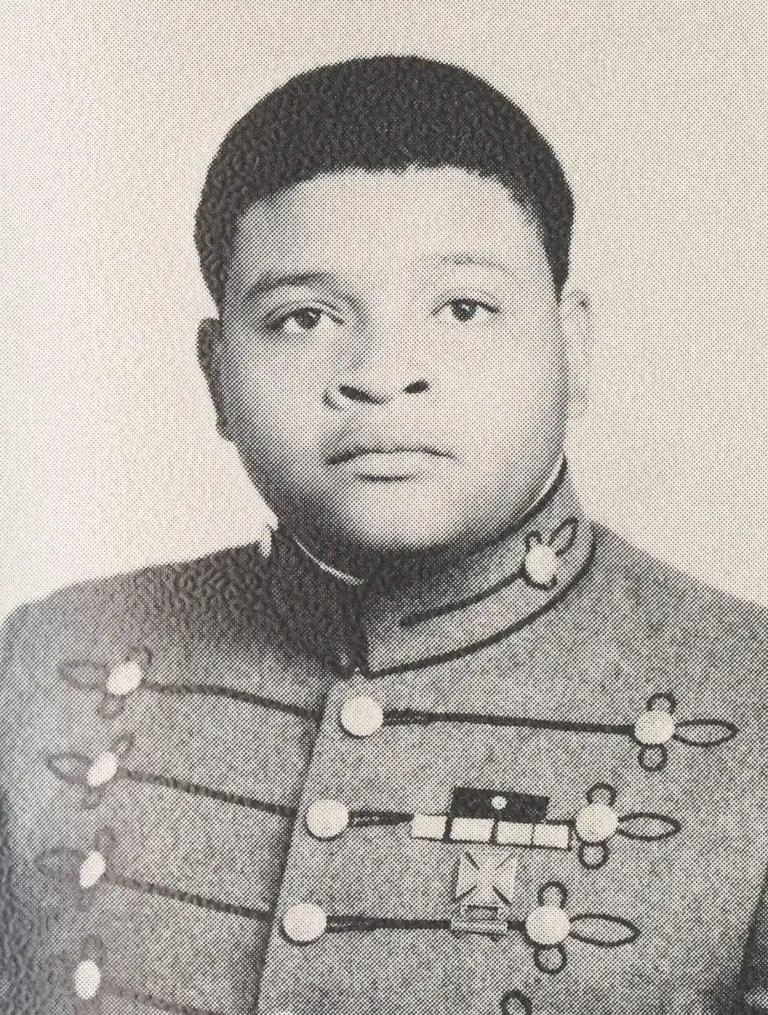On September 6, 1966, Charles DeLesline Foster became the first African American to enroll in The Citadel Corps of Cadets, the military institution in Charleston, South Carolina, founded in 1842. Foster was born on November 26, 1948, at St. Luke’s Hospital in Philadelphia, Pennsylvania, to William C. Foster, Sr., a Korean War Veteran, and Blanche DeLesline Foster, a high school teacher and graduate of Bennett College in Greensboro, North Carolina. His older brother was William C. Foster, Jr. They were reared in Charleston, where they attended Emanuel African Methodist Episcopal Church, the oldest AME church in the Southern United States. Charles was a member of its Sunbeam Choir. Foster graduated at 17 with honors from Charles A. Brown High School in Charleston, South Carolina, in 1966. He had been a star player on the football team.
Foster decided to enroll in the Citadel at the time when the Confederate flag still flew at the institution, and the song “Dixie” was regularly played within its walls. Black men had attended summer school at The Citadel, but none had ever enrolled in the Corps of Cadets. In the summer of 1966, three African Americans were admitted to the Citadel, but Foster was the only one who enrolled as a cadet. On the day of his enrollment, he was escorted by his mother, brother, and maternal grandmother, Naomi DeLesline.
In an era when racial desegregation in Southern universities was often met by violent protests and rioting by segregationists, the military college asked the local newspapers and television stations not to publicize Foster’s arrival on campus. They agreed. However, a small story about Foster’s dormitory and roommate appeared in the Charleston News and Courier newspaper.
Foster encountered blatant bigotry by white cadets, including shouts of derogatory descriptive phrases regarding his physical appearance as he walked to and from class or when he stood in formation with his company. When he was not harassed, he was ignored.
Despite the racism he encountered daily, Charles Foster graduated from The Citadel in the Class of 1970 with a degree in business administration. One local newspaper wrote one paragraph about his academic achievement. Upon graduation, he entered the U.S. Army as a Second Lieutenant and worked as an explosives expert at Aberdeen Proving Grounds in Maryland. After graduation, Foster’s demeanor changed, according to those who knew him, and he refused to discuss his years at the Citadel.
In 1973, Foster moved to Dallas, Texas, to manage a large moving company. Charles DeLesline Foster, who broke the Citadel’s color barrier, died in a house fire in Garland, Texas, on March 29, 1986, only 16 years after his graduation.
Foster was posthumously recognized in 2020 by the South Carolina Corps of Cadets marching in his honor, and in 2021, The Citadel unveiled a portrait of Foster and Joseph Shine, the first two African American cadets, that was placed in the great hall of the Daniel Library on the campus. In 2016, Foster was honored on the floor of Congress of the United States.
Do you find this information helpful? A small donation would help us keep this available to all. Forego a bottle of soda and donate its cost to us for the information you just learned, and feel good about helping to make it available to everyone.
BlackPast.org is a 501(c)(3) non-profit and our EIN is 26-1625373. Your donation is fully tax-deductible.
The Citadel Archives Museum, “Charles Foster and the Black Experience, https://citadeldigitalarchives.omeka.net/collections/show/30;
Jennifer Wallace, “From Foster to the Future, From Foster to the Future,” The Citadel: The Magazine of the Military College of South Carolina, 2019.
“Additional Sponsors – S.6265, Congressional Record (2016).

